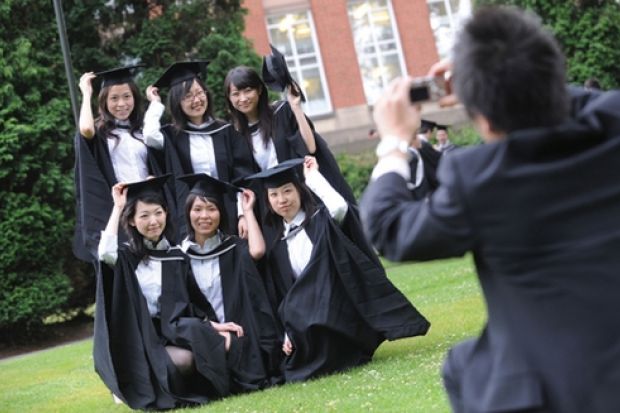The UK risks educating the academic workforce of its competitors while starving itself of home-grown talent if the issue of postgraduate education continues to be put on the "back burner", a university head has warned.
Nigel Carrington, rector of the University of the Arts London, said that cuts to public funding and increased tuition fees for home students meant there was a risk that his institution would in a few years be educating "almost exclusively" overseas students at the postgraduate level.
"If we are not very careful we will be educating the academic core of our overseas competition in the UK without also building a strong teaching and research base of UK academics. That would be, in the long term, very damaging," he warned.
He said that his university's postgraduate fees for home and European Union students were already going up "quite materially" next year to about £6,000 for most courses, and he suggested that charges for arts and humanities courses across the sector could reach the range of £8,000 to £12,000 by 2012-13.
Mr Carrington added that although Sir Adrian Smith, director general for science and research at the Department for Business, Innovation and Skills, was reviewing the findings he made in a report on the issue last year, it was difficult to see what could be done, given the government's financial constraints.
"It is not clear where the money is going to come from if the government is going to fix this postgraduate problem, which appears to have been put on the back burner," he said.
Scandalous rhetoric
Mr Carrington, a former managing partner of international law firm Baker & McKenzie, also criticised the drift of government rhetoric towards graduate employability.
He said it was a "scandal" that David Willetts, the universities and science minister, appeared to be contemplating basing future funding policy on how quickly graduates from individual universities and courses repaid their student loans.
Mr Carrington said he was "puzzled" that the minister was thinking along such lines, given that he "understands the importance of art and design to both civilisation and the creative economy".
"It is a scandal because it ignores the importance of teaching in the arts and humanities," he said.
Mr Carrington also sought to defend changes at the University of the Arts London that have led to redundancies and claims that academics are being overworked as teaching by freelance lecturers is reduced.
The Quality Assurance Agency is in the midst of an investigation into course closures at the London College of Communication, which is part of the university, after it received complaints about the restructuring and its effects on students.
Mr Carrington would not comment on the QAA inquiry, which is due to report in July, but said the university had to make efficiency savings.
He said the main impact on academic staff had come through the removal of further education provision rather than its "core higher education" activities, and he insisted that the future of the LCC's site in South London was assured.
"The strategy for this institution is that we increase our postgraduate community at the same time as we reduce, but not eliminate, our foundation provision," he said.
"The idea that somehow there is a savaging of our academic staff base is not borne out by the reality."
